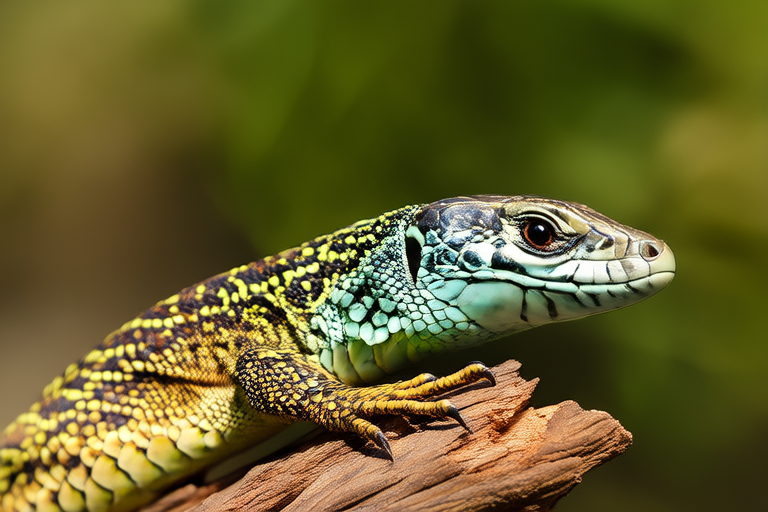The Ultimate Guide to Caring for Your Unique Splendid Japalure
Introduction
Welcome to the world of splendid japalures! These unique creatures are not only fascinating but also require special care and attention. Whether you’re a first-time owner or have been keeping these delightful pets for years, this guide will provide you with all the information you need to ensure your japalure lives a long, healthy, and happy life.
Habitat Setup
Creating the perfect environment for your japalure is crucial for their well-being. Start by choosing an appropriate enclosure that offers ample space for them to move around freely. Experts recommend a minimum size of 3 square feet for one adult japalure, but larger enclosures are always better.
- Substrate: Use a soft bedding like coconut fiber or aspen shavings to prevent injuries and maintain hygiene. Avoid cedar and pine shavings as they can be harmful.
- Temperature and Humidity: Maintain temperatures between 75-85°F (24-29°C) and humidity levels at about 60-70%. A heat lamp or under-tank heater can help regulate temperature.
- Lighting: Provide 12 hours of UVB lighting daily to support calcium absorption and overall health. Full-spectrum bulbs are ideal.
- Hiding Places: Include plenty of hiding spots such as caves, tunnels, and plants to mimic their natural environment and reduce stress.
Diet Specifics
A balanced diet is key to maintaining your japalure’s health. Their diet should consist primarily of insects, supplemented with fruits and vegetables. Here’s what you need to know:
- Insects: Feed your japalure a variety of gut-loaded insects such as crickets, mealworms, and dubia roaches. Dust these insects with a calcium supplement twice weekly and a multivitamin once a week.
- Fruits and Vegetables: Offer small amounts of chopped fruits and veggies like apples, carrots, and leafy greens. Remove uneaten portions after a few hours to prevent spoilage.
- Water: Provide fresh water daily in a shallow dish. Some japalures prefer to drink from a bowl while others may lap up water droplets.
Consult with a veterinarian or a reptile nutritionist for personalized dietary recommendations based on your japalure’s age, weight, and activity level.
Health Care Essentials
Regular health checks and preventative care are vital for your japalure. Here are some essential practices:
- Veterinary Check-ups: Schedule annual visits to a vet specializing in exotic animals. They can perform routine check-ups, vaccinations, and screenings for common diseases.
- Hygiene: Clean the enclosure thoroughly every week, replacing soiled substrate and washing food and water dishes with mild soap. Disinfect the enclosure periodically to prevent bacterial growth.
- Parasite Control: Monitor your japalure for signs of parasites such as mites or ticks. If detected, consult a vet immediately for treatment options.
Early detection of health issues can make a significant difference in treatment outcomes. Always observe your japalure’s behavior and appearance for any unusual changes.
Behavioral Insights
Japalures are known for their curious and active nature. Understanding their behaviors can help you provide the best care and enrichment opportunities.
- Social Behavior: Japalures are generally solitary creatures, so it’s important to provide them with sufficient personal space. However, some may enjoy gentle handling and interaction.
- Cognitive Stimulation: Provide puzzles and toys to keep your japalure mentally engaged. Rotate items regularly to maintain interest.
- Physical Activity: Encourage movement by creating a stimulating environment with climbing structures and obstacles.
Experts suggest observing your japalure’s natural behaviors to better understand their needs and preferences.
Training Tips
Training your japalure can strengthen the bond between you and your pet. Start with simple commands and gradually build upon them:
- Handling: Approach your japalure slowly and gently. Let them get used to your presence before attempting to handle them. Reward calm interactions with treats.
- Target Training: Teach your japalure to touch a target stick or your finger. This can help during veterinary exams or when moving them between enclosures.
- Clicker Training: Use positive reinforcement techniques like clicker training to reward desired behaviors. Consistency is key in establishing effective communication.
Patience and consistency are crucial in training. Always ensure that the training sessions are short and fun to keep your japalure interested.
Bonding Activities
Building a strong relationship with your japalure involves spending quality time together. Here are some activities to enhance your bond:
- Interactive Feeding: Hand-feed your japalure occasionally to create a positive association with feeding times.
- Exploration Time: Supervise your japalure as they explore safe areas outside their enclosure. This can be a great way to stimulate their senses and provide mental stimulation.
- Quiet Moments: Spend quiet time together, allowing your japalure to relax and become comfortable in your presence.
Each japalure is unique, so pay attention to their responses and adjust your approach accordingly.
Conclusion
Owning a splendid japalure is a rewarding experience that comes with great responsibility. By providing a suitable habitat, a nutritious diet, regular health care, understanding their behaviors, engaging in training, and spending quality time together, you can ensure your japalure thrives. Remember, the more effort you put into caring for your pet, the stronger the bond you’ll share.
